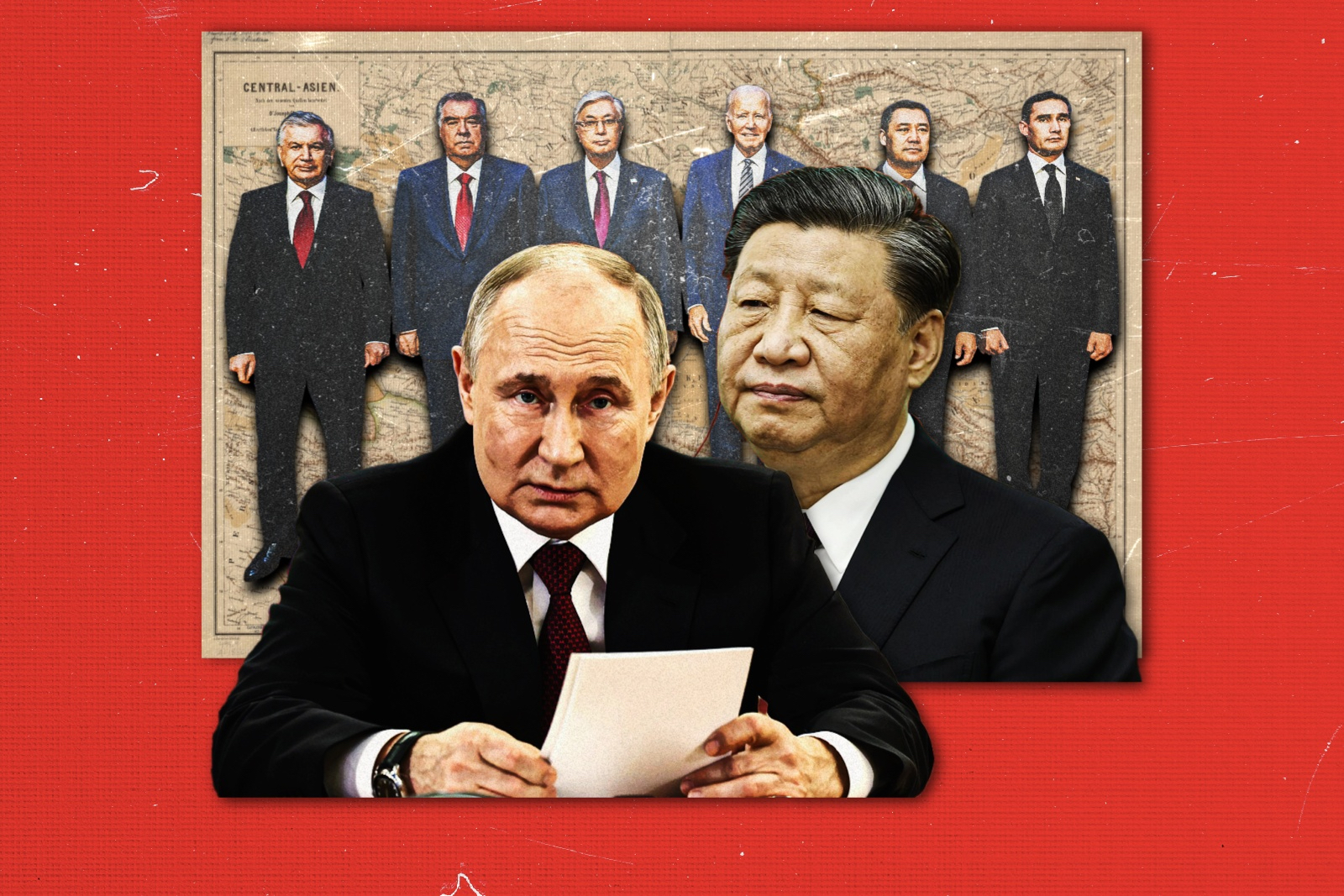
Geopolitical Chessboard: The Central Asian Conundrum
The critical question is why the international community should be concerned with Central Asia. Since the 1990s, the region has experienced enormous economic and political change. The porous borders and migrant flows have intensified conflicts among regional leadership and resulted in the growing militarization of the region’s borders. An outbreak of war is highly probable considering the hotbed of regional ethnic and nationalist rivalries. Central Asia falls low on the priority list for the West. This is indicative of the West’s preoccupation with traditional zones of interest such as Europe, the Middle East, and East Asia. NATO’s vacuum in Central Asia has left the region to tilt toward a non-Western alignment.
Kleptocracy has reigned supreme in the capitals of the countries of Central Asia. Kazakhstan has 5 billionaires on the Forbes list who each have established a network of financial networks controlling government interests and foreign investments. Turkmenistan and Tajikistan are controlled by elite families who have meticulously absorbed national business projects into offshore accounts. The corruption has erupted further by Georgia being one of the central points and breeding grounds for Russian and Eurasian organized crime, specifically the late Aslan Usoyan’s sprawling criminal empire. The issues of crime and corruption in this region are important factors in the current economic competition for investment, energy, and trade.
An important debate fills the People’s Great Hall in Beijing. What level will China engage in establishing its economic footprint? Russian soft power and economic enticements by offering logistics contracts to wealthy elites helped remove America’s Manas military base in Kyrgyzstan. Russia exploited Manas fatigue among the Kyrgyz and achieved its goal of removing Western presence from an area it sees as part of its sphere of influence. This was one of Vladimir Putin’s major foreign policy achievements during his second presidency in 2014.
Even with Russia focusing on Ukraine, the Russia-Georgia conflict has continued to be a major issue in the post-Soviet space. Russians persist in engaging in strong policies of supporting a select number of powerful clients in the region to sway support from the West and China to Russia. The changing nature of the Caucasus in the breakaway regions has established Russia’s footprint as both an enforcer of military equilibrium and peacekeeping power. Russia has served as the primary mediator in the Nagorno-Karabakh conflict between Armenia and Azerbaijan by offering cheap gas and entry into a Moscow-led customs union. The Nagorno-Karabakh conflict has mystified scholars as to the extent of its structural factors and category of theory of conflict. It is an endless cycle of conflict and stalemate with Armenia and Azerbaijan militarizing its borders. Its respective heads of state and heads of government have no succession protocol that would help renew the leadership and its approach to the conflict. No change appears certain in the foreseeable future.
Russia has used soft and hard power to sway Central Asian leaders to pursue policies that would help the Kremlin regain its geopolitical control of the former Soviet Republics. Vladimir Putin’s ideology was formed by the idea of reviving the greatness of the Russian Empire, which is the reason he has agreed to debt forgiveness, lavish investments, open-door membership for the Russian-led custom unions, work-visa programs, and many other instruments to turn the countries of Central Asia into client states. In 2014, the Ukraine conflict began when President Viktor Yanukovych reneged on an EU trade accord and shifted toward Russian-led economic integration. The Kremlin is just as concerned with economic alignment in its sphere of influence as it is with diplomatic and military integration.
China was supportive of strategic partnership with the West in Central Asia during the 1990s when the U.S. welcomed Beijing into global markets and the World Trade Organization. The Chinese outlook regarding Western presence in Central Asia has evolved substantially. China is concerned about the encirclement of its northern geopolitical arena, as well as the West having ample opportunity to conduct surveillance and reconnaissance missions of Chinese nuclear development. Beijing’s global economic policy has been to create investments in more than 150 countries through its Belt and Road Initiative. China’s global infrastructure program has intensified ever since the United States began its withdrawal from Afghanistan in 2014 and recalibrated its foreign policy toward East Asia.
Chinese foreign policymakers know the maxim from Chess that whoever controls the center will win the game, and Central Asia will be shaped by the Chinese-Russian competition over economic and political influence. Moscow and Beijing are limited allies when it concerns this region. Russia cannot stop China in Central Asia, and China is careful not to alienate Russia in its goals of securing the post-Soviet space. This competitive cohesion between allies in the region will create a delicate equilibrium in Central Asian regional affairs.
Russia is an energy juggernaut unrivaled in world history. Some speculate that with Vladimir Putin’s control of Rosneft and Gazprom, he is the wealthiest person in history with a net worth ranging from $600 to $900 billion. China has been able to counter Russia’s grasp on energy deals in the region. Beijing’s CNPC has successfully replaced Gazprom as a supplier and distributor of oil and gas in Kazakhstan and Tajikistan with lavish contracts for the kleptocratic governments. China undermines Russia’s goal of becoming the preeminent energy supplier in the world, and the Chinese footprint on energy deals in Central Asia is creating painful zero-sum game competition. The uneasy competition for energy contracts between China and Russia in this region will be a grand political and economic catalyst.
One of the most challenging questions today is which Central Asian leader will lead the region during its current regional leadership vacuum. Border issues and skirmishes throughout the region have created toxic relations between the countries in this region, and there has been no country that has definitively claimed the mantle of regional leader. The diasporas and demographic complexities complicate the equilibrium that establishes a clear regional power that surpasses its neighboring countries.
In a geostrategic twist, Central Asia’s proximity to various conflict zones has brought its potential role in global diplomacy into sharp relief. Regional leaders, whose governance has often been tainted by accusations of kleptocracy, are now eyeing a reorientation of alliances. A pivot toward Iran is under consideration, with the goal of dismantling sanctions to pave the way for lucrative energy agreements.
At the heart of this realignment is the energy sector, deemed the cornerstone of burgeoning Iran-Central Asia relations. The prospect of Iran re-entering the oil market looms large, posing questions about its potential ripple effects across the global economy. Notably, such a development could introduce a new dynamic to the energy competition currently dominated by China and Russia in the region.
While the Central Asian stance on geopolitical issues such as North Korea’s nuclear ambitions has historically been muted, the silence is seen less as a strategic choice and more as a symptom of the region’s kleptocratic political landscape. The ruling elites appear to prioritize economic alliances that can fortify their grip on power and wealth, often at the expense of broader security concerns, including the threat of nuclear proliferation.
Vietnam has been a microcosm of great power politics in the current global arena. Russia, China, and the U.S. have been intricately involved in Vietnam since the 1990s during its reintegration into the global liberal order. Central Asia is now that battlefield between the U.S., China, and Russia for diplomatic, military, and economic influence in their pursuit of global supremacy. How this affects the world order and the future of liberal internationalism with the tripolar competition in Central Asia will unfold with great mystery.
